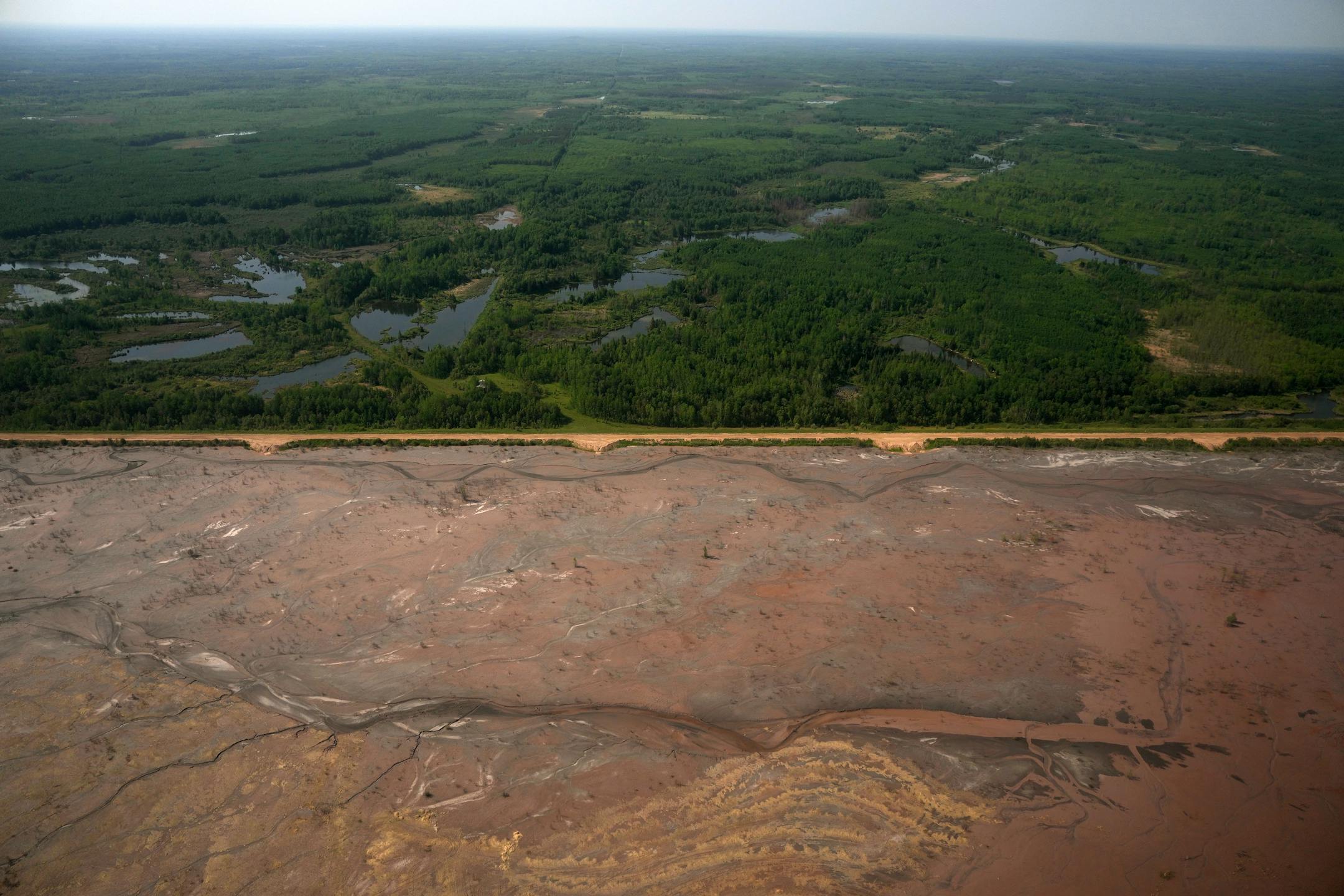Downstream of Greed
A sermon on Luke 12:13-21 and Braiding Sweetgrass
by Rev. Chris Bohnhoff
This past week, a headline in the Star Tribune caught my eye. It read, “To protect wild rice, Minnesota moves to cut off pollution from taconite basins.” If you’ve heard my last couple of sermons, you may remember that I’ve been reading Braiding Sweetgrass by Potawatomi botanist, Robin Wall Kimmerer. It’s a deeply spiritual book in how it names the deep relationships of mutuality that human beings and nonhuman beings share in Indigenous belief and practice – a topic present in Christian spirituality, but one often overlooked.
With that book in mind, I was overjoyed to see that headline! Wow, I thought, thank goodness our state government is prioritizing the care of a plant – a nonhuman being – that’s central to the spiritual, cultural, and economic lives of our Ojibway and Dakota siblings throughout the state. Way to go, us! So, I clicked.
The article opens with a striking image, taken from far above, of the edge of a taconite tailings basin. On one side of the basin edge, boggy green wetlands. On the other, a vast lake of gray-brown sludge.
Will you pray with me? God of iron ore and wild rice, of the wise and the foolish, you watch over us equally, calling all to the same end. Out of the complexity of our individual lives, we gather today as the body of Christ. We seek your wisdom to guide the placement of our bodies and the unharnessed energy of our intentions within the vast web of life. Deliver to your people a word that helps us expand our limited viewpoints, expose our blind spots, and turn more fully to your love. In your many holy names, we pray. Amen.
It’s deeply humbling to notice how quickly the human mind turns to want. I’m not proud of my reaction, for example, to seeing a pizza set on a table, for example, or how I covet a big spoonful of Heiko’s special pint of Ben & Jerry’s sitting in the freezer. I. Want. It. Just ate a satisfying dinner? Doesn’t matter. My lizard brain will not be satisfied. It wants.
And so it is with the person in the crowd from our reading. The author of Luke writes that the crowds around Jesus now numbered in the thousands. And out of this sea of people seeking healing and wisdom comes a voice that demands, “Teacher, tell my brother to divide the family inheritance with me.” (Luke 12:13) On a certain level, the question is understandable. Jesus is a teacher of wisdom, one with a growing reputation as a healer of relationships, a champion of the powerless elements in society, one who stands on the side of giving to those with not enough. Why not ask him to settle a matter of family economics? Anyone who has been through the death of a parent and the settling of an estate can tell you how much strain it can put on one’s emotions and family relationships.
But as Jesus often does, he responds in a way that says the person’s attention is in the wrong place. Jesus tells a parable of a rich man who becomes even more rich. So rich that he begins making plans to stop working and just take it easy. Live the dream, as they say.
It’s exactly what our lizard brains want, right? To be comfortable and free to eat all the pizza we want, consequence-free. The imagination of the person in the crowd must have been going to a place at least of less want at the thought of that inheritance, if not a place of luxury.
Back in the parable, the rich man’s wheels start turning about the bigger barn he’ll need to store all his new loot. Then, the parable twist: God breaks into the man’s planning. “You fool! This very night your life is being demanded of you. And the things you have prepared, whose will they be?” (Luke 12:20)
It’s a brief but effective takedown of the person’s inheritance question – a redirect that we all need from time to time from foolishness to wisdom. Much the Hebrew Bible’s wisdom tradition covers this territory: that to act primarily from one’s material need as the main point of reference is foolish, and to remember one’s relationship to the sacred – and therefore with all of creation – before acting, and to understand the consequences of one’s actions before making them, that is wise action. The fool lets their lizard brain convince them that the big harvests will always be there, so kicking back today is no big deal, but the wise remember the constancy of change, the ever presence of the sacred, and the fact that flourishing only truly occurs when it is shared.
Taconite mining in northern Minnesota dates to the 1960s. After it’s dug up, taconite ore is crushed to powder, and magnets pull out the iron which is then baked into pellets and shipped out. 30% is iron and 70% of that crushed taconite is waste – the tailings – ending up in big basins. The tailings need to be stored because they’re high in sulfates. The MPCA has determined that more than ten parts per million in drinking water is unsafe. Sulfates also settle in lakes and produce sulfide, which hits aquatic plants like wild rice hard.
The thing is, federal and state legislators have known the dangers posed by the taconite basins since the 1970s. That’s when regulations went on the books to keep northern waters from becoming polluted. But economic systems are particularly susceptible to the lizard brain: there are minerals in that land, there are profits for our stakeholders, there are jobs for our community. And for 50 years, that lizard brain has kept the regulators at arm’s length.
Today, the water flowing downstream from the taconite basins reads as high as 920 parts per million, 92 times the legal limit. Water flows downstream of the tailings basins and filters into aquafers and thousands of wild rice lakes. Here’s what the water projects coordinator for the Fond du Lac Band of Lake Superior Ojibway said of the state’s latest vow to stop the taconite basin’s pollution: “It’s taken us a long time to get here. Like a whole career.” A whole career to move from passing a law to its enforcement.
Please don’t mistake this sermon for me lobbing blame at mining companies, or state regulators, or Indigenous folks and what those wrapped up in their own egos view as unrealistic expectations around water quality. We are past the point of blaming individuals, or corporations, or governments. This is a collective failing. Too many of our societal narratives play to our lizard brains that crave endless positive returns of our stock market and stubbornly justify the clear and alarming downstream effects of our bottomless hunger for speed, “progress,” and ease.
We are awash in images of poisoned ecosystems whose poisoning continues as we hold tightly to the foolish justifications for our collective actions. Children starve in Palestine. Immigrants in our state cower in their homes. Public servants laid off from their federal jobs wonder what’s next, and so many Americans wonder whether they will be able to afford housing, food and healthcare in the coming years. All around us, evidence of our own foolish lizard brains.
But here’s the thing: the sacred stories of all traditions show us that hope begins with opening our eyes and being present to the web of creation. In our opening reading, Wall Kimmerer describes fields once full of sweetgrass choked with weeds. The indigenous response: lean into the relationship between humans and plants. Begin the slow tending of making room in the ecosystem for sweetgrass to return. Give thanks for the gifts of the creator.
In our own tradition, we remember how through one healing, one teaching, one meal at a time, Jesus made change simply by reminding people of their own belovedness in God’s eyes, and the spiritual vastness of God’s love for creation versus the puniness of empire’s greed and domination.
My friends, wisdom teaches that we must be present to the world’s pain. Not so that blame for that pain can be assessed, but because it’s the first step towards healing. With faith in God’s infinite love and commitment to new life, can we choose hope over despair? Can we tell the small stories of tending that show another way? Can we be those stories ourselves?
Today during coffee hour, and at the potluck tonight, and as you go through your week, I invite you into the spiritual practice of looking for new stories of hope and sharing what you find.
Our current world’s dominant story of greed, harm, and denial is not the only story. Let us be clear-eyed when we encounter these stories and let us choose a new story in God’s grace. Amen.


Leave a Reply